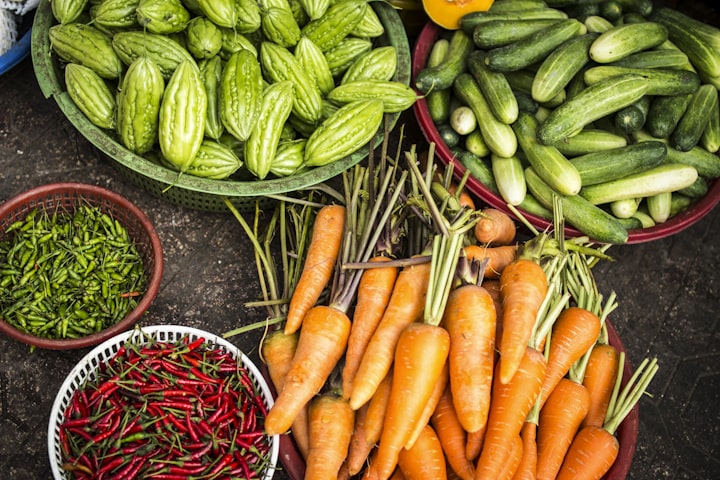
What foods are essential for good health?
To take care of yourself, the WHO recommends a varied and balanced diet , considerably reducing the consumption of refined sugar, salt and processed products. But then what are the essential foods to be healthy and for what reasons? Discover without further delay the main principles of healthy eating .
1. Vegetables: at will and at each meal
Rich in fiber, each vegetable contains its own micronutrients: vitamins and minerals. They help the proper functioning of the body, the immune system, the digestive system and the brain.
To make the most of their virtues, choose them fresh, local, seasonal and preferably organic. These criteria make it possible to preserve their nutritional values, until consumption. However, if this is not possible, frozen vegetables with no added salt are still a good substitute option. Always with the aim of preserving their benefits, eat raw or low-cooked vegetables.
Some of the richest in nutrients include:
Broccoli
Garlic
The pepper
The cabbage
Good to know: green vegetables are your best health allies. Available in every season, they are among those that contain the most micronutrients.
2. Fresh fruit: essential foods for good health
Fruits also provide significant amounts of vitamins and minerals. Consumed every day, they help maintain good health and a balanced diet. Their caloric intake is generally higher than those of vegetables, as is their carbohydrate (sugar) content.
Here is a non-exhaustive list of fruits with high nutritional value:
Apple
The tomato
The lawyer
Orange
The banana
The blueberries
It is interesting to consume fruits at the beginning of the day and before any physical or mental effort. In fact, sugar is the main fuel for the brain. In addition, carbohydrates are directly assimilated by the muscles during the practice of a physical activity or sport.
3. Legumes
They offer many benefits to their consumers and promote satiety, which helps to avoid cravings. You will find them dry or canned.
The most common legumes are:
Lentils (green, white, coral)
Chickpeas
Beans (red, black, white)
Split peas
Soy
All of these products are excellent sources of fiber, plant-based protein, and vitamins and minerals. You can cook them in salads, soups, side dishes, but also in stews.
4. Fresh eggs
The consumption of eggs provides many vitamins (A, D, E, K, B2, B5, B6, B8, B12). This digest of micronutrients promotes, among other things, immune defences, the fixation of calcium on the bones and the functioning of brain cells.
Rich in protein, egg whites are also a good source of iron. The egg yolk, on the other hand, is made up of lipids. Quality eggs contain a balanced supply of omega-3, 6 and 9.
Good to know: the quality of the eggs depends directly on the conditions in which the hen is raised. Thus, it is better to opt for eggs from hens raised in the open air, organic or with the blue, white, heart label. The latter indicates that the animals are fed flaxseed, favoring the presence of omega-3.
5. Oily fish to promote fatty acid balance
Oily fish contains a significant amount of omega-3s. Omega-3, 6 and 9 are the fatty acids found in lipids. A balance between these promotes the maintenance of a healthy body and brain. In the West, the usual diet contains too many omega 6s. Eating oily fish helps to rebalance the ratio between these fatty acids.
Here are some species of this fish family:
Mackerel
Sardines
Herring
The tuna
The salmon
In addition to lipids, these fish are an excellent source of protein, vitamins of group B as well as D. They also provide a significant amount of phosphorus, iron and selenium. This sum of micronutrients contributes to the maintenance of good cardiovascular health. It also prevents cognitive and degenerative diseases such as Alzheimer's.
6. Dried fruits and nuts
To increase your daily fiber intake, you can eat some dried fruits. These fit easily into breakfast, muesli or porridge. Easy to carry, they allow you to have a healthy snack at your fingertips. Dried fruits to favor are:
Bananas
Figs
The dates
Prunes
As for nuts, they contain an important quantity of essential fatty acids. Among those with the most nutritional values are:
Nuts
The almonds
Nuts
7. Seeds
Decorating your dishes, salads or cereals with certain seeds makes it easy to increase your consumption of vitamins and minerals.
The seeds that have the best nutritional intake are those of:
Linen
chia
Sunflower
Squash
Millet
These seeds are rich in fibre, vegetable proteins as well as in omega-3 and 6. Sold dry, these foods also have the advantage of being able to be stored for a long time.
A nutritionist is a specialized general practitioner . It can help you in this food rebalancing process. The service of this expert is reimbursable by social security and your mutual. This is for people with eating disorders, obesity, anorexia, etc.
In order to rebalance your diet and in the absence of illness, you can consult a dietician. The examinations of the latter are not reimbursed by social security. On the other hand, with LeChatSur, you can identify mutual insurance companies that will pay for your sessions.
Do You Want To Reduce Your Weight
I'm Sure This Will Help You






Comments
There are no comments for this story
Be the first to respond and start the conversation.